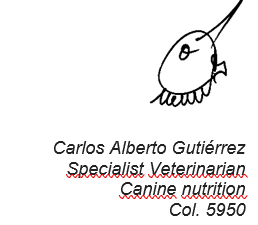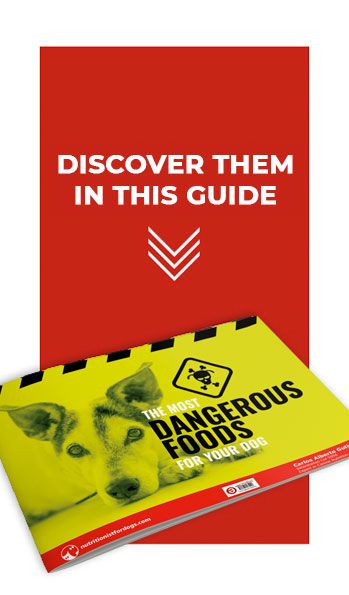
Here is the second part of this article.
You can read the first part here
Maintaining a balance in the microbiome is a delicate matter
There are two types of bacteria in the dog’s microbiome: beneficial and pathogenic (friendly and harmful), and the balance between these bacteria is critical and easy to disrupt.
What can damage the microbiome?
1. Antibiotics
The problem with antibiotics is that they indiscriminately kill both the beneficial and harmful bacteria in your dog’s gut. Not only does this upset their balance, but it can wipe out the entire colony, leaving only the resistant germs, which can grow and multiply.
However, the vast majority of these patients need to receive antibiotics. How? It seems like a contradiction, but it is not. Allow me to explain. The classic and almost obligatory protocol in this type of digestive patient is an anti-inflammatory and an antibiotic; Corticosteroids are used as anti-inflammatories, and metronidazole or tylosin as antibiotics.
These patients ALWAYS have a dysbiosis, in other words, an imbalance in the intestinal flora, mostly pathogenic microorganisms. It is very common that there is an excess of protozoa, the most predominant of which in these cases, is giardia.
What’s more, even if your dog hasn’t taken antibiotics before, if he’s eating conventionally raised animal feed, he’ll be indirectly consuming, to a much lesser degree, the antibiotics that were given to the cows or chickens that he eats.
As veterinarians, we have nothing against antibiotics, on the contrary, when they are necessary, they are prescribed, but always under the supervision of the veterinary doctor.
2. Vaccinations
They alter the immune system and inhibit the growth of beneficial bacteria.
3. Steroids
Steroids inhibit many important intestinal functions, suppress the immune system, and can cause the growth of harmful bacteria.
4. Stress
If your pup spends many hours alone or suffers from other chronic pressures, this will make him more susceptible to having an unbalanced microbiome.
5. Diet
Dogs that eat processed or high-carbohydrate diets (and any kibble or dry food on the market will be high in carbohydrates) will have an unbalanced intestinal flora. Carbohydrates, especially those with a higher glycemic load, are the preferred food for many harmful bacteria. Grains and carbohydrates will also cause an excess growth of fungi and yeasts.
Genetically modified (GMO) foods, preservatives, dairy products, dyes, and chlorinated water can also harm the microbiome.
When the bacteria in the microbiome become imbalanced, the result is called dysbiosis. And dysbiosis can create or worsen allergies through what’s known as leaky gut.
What is leaky gut?
When harmful bacteria are allowed to proliferate, they can cause leaky gut, which is exactly what it sounds like: holes can develop in your dog’s intestinal lining, allowing intestinal contents to leak into the bloodstream.
As a result of dysbiosis, the mucosal lining of the intestine becomes irritated and inflamed.
This inflammation causes the enterocytes, which are the cells that line the intestines, to break apart. When this happens, bacteria, fungi, and undigested food begin to leak into the bloodstream.
Undigested proteins are not supposed to be in the bloodstream, and if they do enter, the immune system kicks into high gear, and attacks and neutralizes them.
Sometimes the foreign protein antigen can resemble the structure of one of the body’s own tissue proteins. This is called molecular mimicry and can cause the body to create antibodies against itself, which is the cause of autoimmune diseases and allergies.
Leaky gut can also lead bacteria and bacterial endotoxins called lipopolysaccharides to pass through the intestinal lining. These definitely do not belong in your dog’s bloodstream and will circulate through the liver, kidneys, heart and other organs where they cause inflammation and chronic disease.
Therefore, leaky gut not only causes allergies and hypersensitivity disorders, but also creates autoimmunity (autoimmune diseases), which is the main cause of a large number of health problems such as:
•Joint pain
•Thyroid disease
•Heart disease
•Disorders of the nervous system and eyes
•Inflammatory bowel disease (IBD)
• Collapsed trachea and laryngeal paralysis
•Disorders of the liver, gallbladder and pancreas
• Behavioral problems, since your dog’s gut and brain communicate through the endocrine system
•Cancer
As researchers learn more about the microbiome and its delicate balance, it is becoming increasingly clear that leaky gut is one of the most important and preventable diseases in dogs and humans.
How to prevent or repair your dog’s leaky gut: 10 key points
1. Stop feeding your dog processed feeds such as kibble which comprises at least 30% carbohydrates.
Carbs nourish harmful bacteria, so a fresh, thoroughly cooked diet is a far better option. The heat and longer cooking time break the carbohydrate bonds and make it much easier to digest and absorb.
The general rule we use as to whether or not to recommend kibble is the following: if the owner has identified a brand that they are comfortable with, they should go ahead and use that brand. The safest option, if the owner is not clear about this, is to use hydrolyzed protein feed.
Based on our experience, more than 95% of the cases improve with a homemade diet made under the supervision of a veterinarian with expertise in canine nutrition. The feed or kibble that should be used as a complement are those made with hydrolyzed protein.
2. Give your dog or cat only the specific drugs recommended by an experienced veterinarian.
The vast majority of these patients must undergo a corticosteroid and antibiotic protocol. The former are very effective as anti-inflammatories and the latter are needed because these patients suffering from dysbiosis are prone to develop superpopulations of pathogenic bacteria, especially protozoa, starting with not only with the famous giardias, but also cryptosporidium, eimerias, firmicutes, as well as a variety of other fauna which can complicate treatment, which is why antibiotics are crucial in most cases, necessitating teamwork and total confidence in your veterinarian.
3. Reduce your dog’s stress: if he spends many hours alone at home, find him a companion or take him to doggy daycare.
I can assure you that medications and nutrition are just as important as the patient’s state of mind, and it is important that you take him for walks two or three times a day, allow him to play with friends at least two or three times a week, and pet him and give him gentle massages along his spine. All this helps in the generation of endorphins and other biochemical mediators that contribute to his general wellbeing and relaxation, and believe me, this contributes considerably in alleviating the patient’s digestive system.
4. Never administer an unnecessary vaccine.
Once an adult dog has responded to a vaccine by generating vaccine antibodies, scientific research shows that it is unnecessary to administer any more. As veterinarians, we are advocates of vaccinating dogs. However, we do not generally recommend an annual vaccination every year of their lives, except in certain specific circumstances.
Instead of revaccinating, ask your veterinarian to perform a titer test, which is an antibody blood test that can tell you if a previous vaccine is still protecting your dog’s immune system. If he has been vaccinated and received a booster, your dog is probably still protected and most likely does not need to be revaccinated.
Why are animals, including humans, not vaccinated every year? Because we mammals have something called “immunological memory”. Once you or your dog are vaccinated and receive a booster, depending on the type of vaccine, the body generates vaccine antibodies and “memorizes” them, and if on any occasion the infectious agent against which it has been vaccinated attacks, the organism of the vaccinated patient generates those antibodies that have been stored in its immunological memory to defend itself and attack that infectious agent.
5. Stop using processed foods such as kibble, as they contain preservatives and ingredients which are often genetically modified, such as soy and corn, which may be damaging to the microbiome.
You should be aware of the fact that commercial feed or kibble is poor in nutrients, enzymes and other elements which are needed to strengthen the intestine, and that instead of strengthening it, you will weaken it.
6. Feed your dog organic food: Organic vegetables do not contain harmful pesticides and organic meats are free of antibiotics. Organic food is more expensive, so if you cannot obtain organic food, at least make sure that you use natural, unprocessed foods or foods with minimal processing.
7. Avoid anti-nutrients: many types of kibble contain mycotoxins which are molds that can cause severe intestinal and autoimmune reactions, as well as serious, often fatal, liver damage.
8. Feed your dog or cat prebiotics. Prebiotics are what beneficial gut bacteria (probiotics) feed on and facilitate the production of fatty acids that protect the mucosal cells of the intestinal lining.
Which foods are rich in prebiotics? Fruit and vegetables in general. If you feed your pet apples, peaches and pears, etc., do not remove the skin, since the skin of fruits and vegetables are rich in fructooligosaccharides (FOS) and mannan oligosaccharides (MOS). And what are they? They are key nutrients which feed probiotics, thus maintaining a healthy and beneficial microbiota, vital for a healthy gut.
9. Give your dog probiotics. Our clinic is dedicated exclusively to canine nutrition, and the first thing we do once we start with the patient’s nutritional strategy is to strengthen his intestine.
As 95% of patients are fed with commercial feed or kibble, they are often malnourished and have a weak digestive system with a much reduced microflora. It is therefore essential, at least in the early stages, to administer probiotic capsules that are rich in quality and with a high quantity of probiotics.
There are foods which are rich in probiotics, but no matter how probiotic rich they are, they cannot be compared to the administration of probiotics externally by means of probiotic capsules. Eating foods rich in probiotics is good, but if we really want to reach more or less decent levels, especially initially, the use of external probiotics is ESSENTIAL.
Probiotics for human use. In my experience, I have found that probiotics for human use are much better and cheaper, so they are the ones I always recommend. It’s important that you pay attention to two characteristics: that they contain the acidophilus strain and that each capsule contains at least 40 billion, although the more, the better.
10. Digestive enzymes. We prescribe digestive enzymes to practically all of our digestive patients.
What are digestive enzymes? They are essentially molecules that enhance and fulfil a thousand processes in the organism. In this case, the enzymes we are interested in are the so-called digestive or pancreatic enzymes that help to break down nutrients, especially proteins, carbohydrates and fats.
This example will help you better understand the concept of enzymes. You have probably heard of people who are “lactose intolerant”. This means that their body is not able to break down the sugar present in milk (lactose), and as a result, they may suffer from headaches, gas and diarrhea, etc. Somebody who is lactose intolerant does not generate the enzyme that breaks down this lactose. This enzyme is called lactase. The suffix “ase” is frequently added to the name of the enzyme’s breakdown compound, lactase in this case, which degrades lactose.
Somebody who is lactose intolerant is not able to produce lactase, and this is when the problems begin. It is common that with age, people stop producing lactase, and the milk that they used to consume without any problem, starts to “weigh them down” over the years. This problem can be solved in three ways: stop drinking milk, drink lactose-free milk or ingest lactase (enzyme) in sufficient quantities to break down lactose (milk sugar).
Once you are aware of this, it will be easy to understand that if we incorporate digestive or pancreatic enzymes in the diet of that digestive dog: proteases (enzymes to break down proteins), amylases (enzymes to break down starches) and lipases (enzymes to break down lipids or fats), we will improve the function of the intestine, which, in turn, will help to improve their health and, therefore, the absorption of nutrients.
There is a well-known worldwide brand of pancreatic enzymes: Pankreoflat. It is the one we generally recommend since it makes our work easier as the owner can usually find it easily, wherever they live. There are also a thousand other brands which are easy to obtain. What should we look for? That they have these three enzymes: proteases, amylases and lipases.
You should know that since commercial feed or kibble are subjected to so many industrialization processes, such as high pressures and temperatures, they are deficient in enzymes, which is another reason to avoid this type of food.
So, in summary: If you don’t see any improvement with the allergy treatments you’re giving your dog, start treating his gut.
As long as these undigested proteins and harmful bacteria filter through your gut, your immune system will have to work harder and your allergy symptoms will remain.
Overpriced allergy kibble does nothing but “stir up the hornet’s nest”, so treat your dog’s leaky gut today and tackle his allergies at their source.
In our clinic, we have treated many cases of this type with great success.
We have relied, above all, on the books by:
Stephen Ettinger, Edward Feldman, and Etienne Cote. Textbook of Veterinary Internal Medicine.
Robert Washabau and Michael Day. Canine and Feline Gastroenterology.
Click here and fill out the questionnaire so that we can start working together.
Best regards


